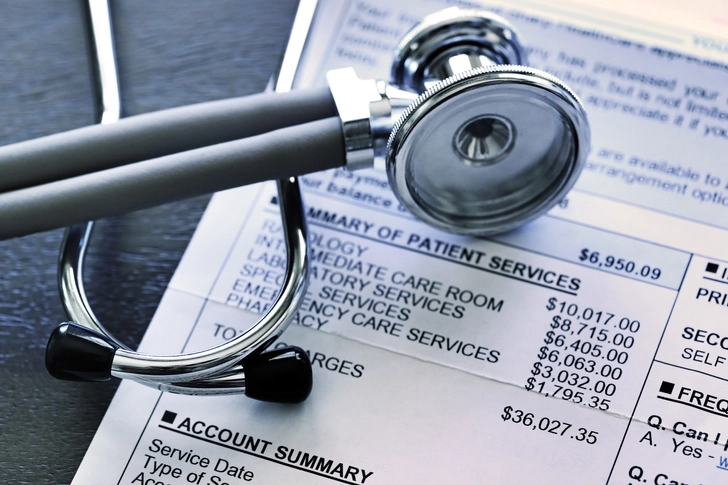Why Wegovy Works Best with Diet and Exercise


Understanding GLP-1 Medications
GLP-1 medications work by mimicking the hormone GLP-1, which plays a role in regulating appetite and insulin secretion. These drugs can significantly aid in weight loss by reducing hunger and helping patients feel full longer. However, they are not a standalone solution. Without proper nutrition and physical activity, the benefits of these medications can be limited, and patients may not achieve their long-term weight management goals.

The Role of Diet in Weight Loss
A well-balanced diet is crucial for anyone aiming to lose weight, especially those on GLP-1 medications. Patients should focus on eating low-fat foods and monitoring their calorie intake. Getting enough protein, fruits, vegetables, and staying hydrated are essential elements of a healthy diet. Tailoring the diet to manage the side effects of GLP-1 drugs, such as nausea and delayed gastric emptying, can also improve compliance and overall health outcomes.

Exercise and Effective Weight Loss
Regular exercise is indispensable for maintaining muscle mass, which can be lost during weight reduction. Strength training and other forms of physical activity help preserve lean muscle mass, crucial for metabolic health and long-term weight maintenance. Exercise not only aids in weight loss but also improves cardiovascular health, bone density, and psychological well-being.

Overcoming Exercise Challenges
Exercise can be particularly challenging for people with obesity due to physical discomfort and psychological barriers. Choosing low-impact activities such as cycling, swimming, or water aerobics can reduce joint strain and make exercise more enjoyable. It's crucial to find activities that patients enjoy, as this increases the likelihood of maintaining a regular exercise routine.

The Long-Term Approach to Weight Management
Weight loss should be viewed as a long-term commitment rather than a short-term goal. Experts recommend that patients who benefit from GLP-1 drugs stay on them. Continuous medication, combined with lifestyle modifications, can help maintain weight loss and prevent the common issue of weight regain after stopping the medication.

Personalized Treatment Plans
Obesity is a complex, chronic disease that requires a personalized treatment approach. Effective weight management involves a comprehensive evaluation of each patient’s baseline diet, exercise habits, and willingness to make lifestyle changes. Tailored treatment plans that integrate medication, diet, and exercise can address individual needs and improve the likelihood of successful weight management.

Integrating Psychological Support
Behavioral changes are a significant component of effective weight loss. Programs like WeightWatchers have integrated GLP-1 medications with behavioral support, emphasizing the importance of a shift in mindset. Addressing emotional eating, improving self-esteem, and fostering a positive relationship with food and exercise are critical for long-term success.

Benefits of Medical Supervision
A successful weight loss strategy incorporates medication, diet, and exercise, supported by regular medical supervision. Patients should start with lifestyle modifications and consider medications like GLP-1 drugs as additional tools. Regular check-ins with health care providers ensure that the treatment plan remains effective and adjustments are made as needed for optimal results.

Managing Side Effects of GLP-1 Medications
Patients on GLP-1 medications often experience gastrointestinal side effects like nausea, vomiting, and constipation. Proper nutrition can help manage these side effects. For instance, softer or liquid meals may be better tolerated initially, and staying hydrated is crucial to avoid headaches and fatigue. Tailored dietary plans that address these issues can improve patient compliance and overall health.

The Importance of Ongoing Support
Continuous support from health care providers and structured programs can significantly enhance the effectiveness of weight loss medications. Look for comprehensive programs that include nutritional guidance, exercise plans, and regular monitoring. These programs ensure that patients receive the necessary support to achieve and maintain their weight loss goals.
Photo Credits:
Slide 1: zdenek_macat/Shutterstock
Slide 2: iStock/Getty Images Plus
Slide 3: Andri wahyudi/Shuttertock
Slide 4: E+/Getty Images
Slide 5: Brian Chase/Getty Images
Slide 6: Tetra Images/Getty Images
Slide 7: E+/Getty Images
Slide 8: E+/Getty Images
Slide 9: iStock/Getty Images Plus
Slide 10: iStock/Getty Images Plus
Katherine Saunders, MD, Weill Cornell Medicine; co-founder, Intellihealth.
Gary Foster, PhD, chief science officer, WeightWatchers.
Tara Schmidt, MEd, RDN, LD, lead registered dietitian, Mayo Clinic Diet.
Michelle Cardel, PhD, MS, RD, WeightWatchers.
Spencer Nadolsky, DO, medical director, WeightWatchers.SOURCES:
Mathias Sorensen, exercise physiologist, University of California, San Francisco.